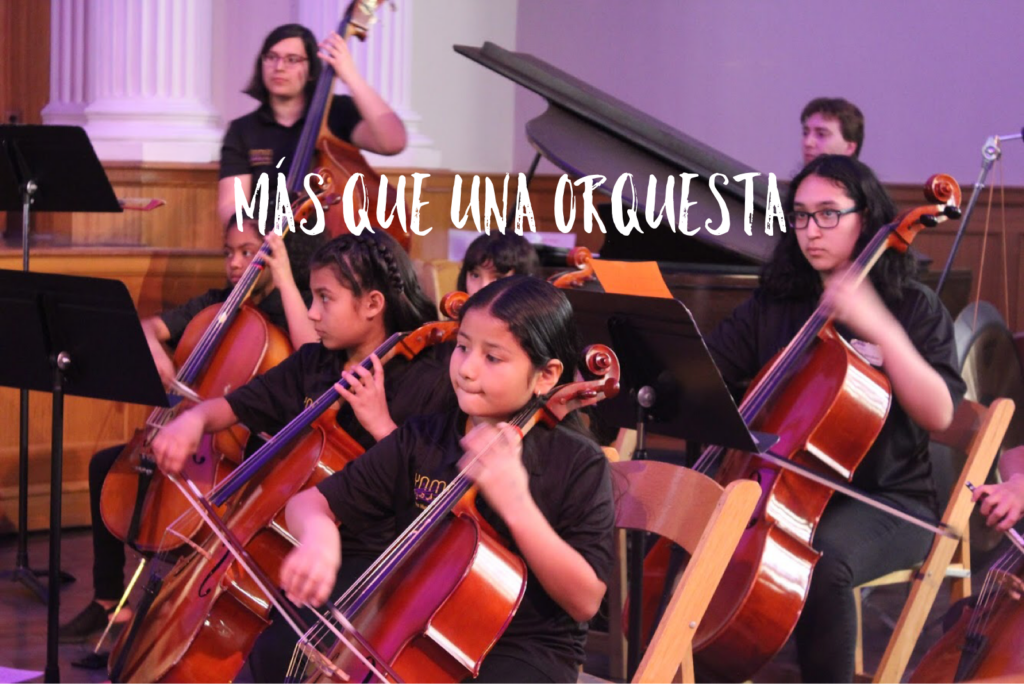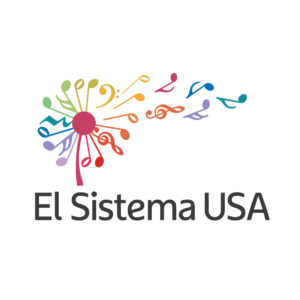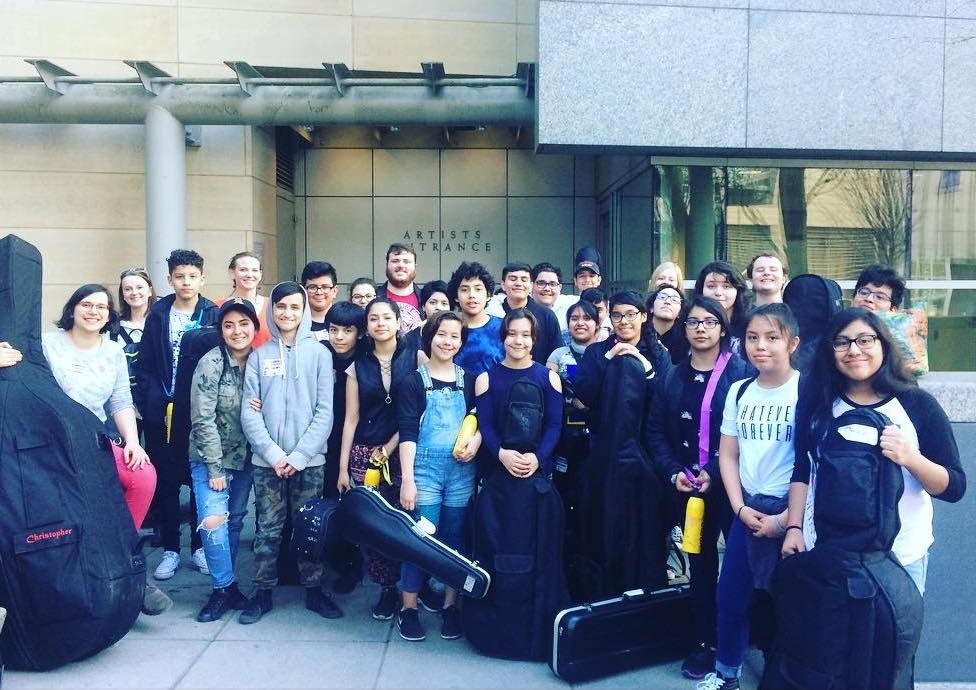
Yakima Music en Acción, called YAMA by their community, looks like an after-school music program on the surface. With three youth orchestras, they provide a space for third through 12th graders, from 22 different schools in the Yakima School District, to learn how to play classical music. Dig a little deeper and you can see it’s more than an orchestra. It’s a leadership program centered in diversity, equity, and inclusion work, that has a significant impact on the young people who participate.
The authenticity of this impact is possible because YAMA walks the talk, striving to incorporate what they teach into their organization at every level. While they encourage students to show leadership by working as a team and bringing people together, at the same time staff and teachers model this type of leadership. Students learn that being a good leader means being a good means being a good listener, helping others feel safe and confident, soliciting ideas and feedback from others, and sharing power. Testimonials from graduating seniors show YAMA’s incredible success at making positive change in the lives of their student musicians.
“In kindergarten, I didn’t speak a word at school. I didn’t speak English and I came from a different state and I didn’t know anyone. YAMA pushed me to another level. I like pushing myself and really challenging myself because then it gets me growing. And now, I feel like I can do anything I set my mind to, and I’m really confident. I am the person that I want to be and I’m happy about it.” (Enerida Mendoza, YAMA Newsletter, March 2020)

Students are also taught how to navigate an inequitable world. As part of their vision, YAMA “instills pride and inspires and unifies our students, families, and the neighborhoods they come from.” By encouraging and supporting young musicians of color, YAMA seeks to disrupt the white power structure of the classical music world and helps them see a future in classical music that they might not have envisioned otherwise.
Beginnings of YAMA

YAMA was created when local community leaders came together, with partner organizations, to address the need for meaningful after school programming for Yakima youth. They found a model in El Sistema, a music-education social program, founded in Venezuela in 1975 by José Antonio Abreu. At the time in Venezuela, almost all of the classical musicians were white Europeans. El Sistema gave Venezuelan youth the opportunity to learn how to play classical instruments and invited them to be part of the classical music community. The music program grew into a social program, creating a community for young musicians without other support. As graduates from the original El Sistema program pursued careers in music, they became notable names in the classical music world. The program structure spread around the world, reaching communities like Yakima, where young people were invited, many for the first time, into the world of classical music.
Traveling to the Sphinx Conference
In February some YAMA students and staff traveled to Detroit to attend a convention hosted by Sphinx (a national organization dedicated to transforming lives through the power of diversity in the arts). They participated in sessions on navigating the classical music world as musicians of color and as educators in a field lacking in diversity. It provided a space for critical reflection, where they could talk about race and class while also building music skills. Students were inspired by being part of a group of musicians who were mostly people of color and who love classical music. One YAMA student at the convention talks about this significance of the experience:

“I’d never traveled out of the state without my family. When you go to the symphony orchestra it’s majority White and it was really cool getting to experience seeing people of color being in an orchestra. It was powerful.” (Liset, violin, YAMA Newsletter, March 2020)
They were especially impressed by an internationally-acclaimed musical competition for young Black and Latinx musicians. Back in Yakima they shared it with younger students who weren’t able to attend. They voted on who should win, writing letters to their favorite competitors, even if they didn’t end up winning the competition. For the students who didn’t attend, it was remarkable for them to see young musicians of color on a screen performing at such a high level.
How to Walk the Talk
- YAMA begins walking the talk with their staff. They often check in with each other in “walk and talks” and model this supportive environment to students. Prioritizing diversity, equity and inclusion can be difficult work. Even for a nonprofit that centers and teaches equitable leadership, it can be easy to revert under stress to white supremacist cultural norms that can harm others.
- YAMA’s board and staff actively work to understand how they internalize white supremacy culture and the specific power dynamics that are inherent in how a nonprofit is structured. For an organization with YAMA’s core values, it can be challenging to navigate the needs for community credibility and funding in a world where power-holders and decision-makers are largely white and wealthy, and implicit rules dictating behavior and success in the mainstream tend to emphasize cultural norms taught and valued in whiter and more privileged spaces. But it’s worth it when the evolution within the organization ripples out to positively change their community.
- The student musicians are organized into sectionals, playing instruments at the same skill level. These groups offer constructive learning spaces, where students are “teaching each other, growing together, and accountable to each other.” Another testimonial from a graduating senior shows how deeply YAMA’s teaching practices affect student values:
“In YAMA they teach us to lead by example. We’re all really equal and no matter what if you’re given a section leader position everyone has an equal say. In other places that’s not how it goes. Music is interpretive and so getting other perspectives on how things are going to go is really important especially for music to truly be beautiful — to move people.” (Itzel Pérez, YAMA Newsletter, March 2020)
Learn more about YAMA on their website and by subscribing to their e-newsletter and following them on Facebook! And check out their music on the YAMA youtube channel.

YAMA grows confident leaders throughout the neighborhoods it serves by widening access to professional-level music learning, igniting collective pride, and empowering students and families. They have been a Washington Nonprofits member since 2018.
Thank you to Stephanie Hsu and Hannah McMeekin from YAMA for sharing YAMA’s story!